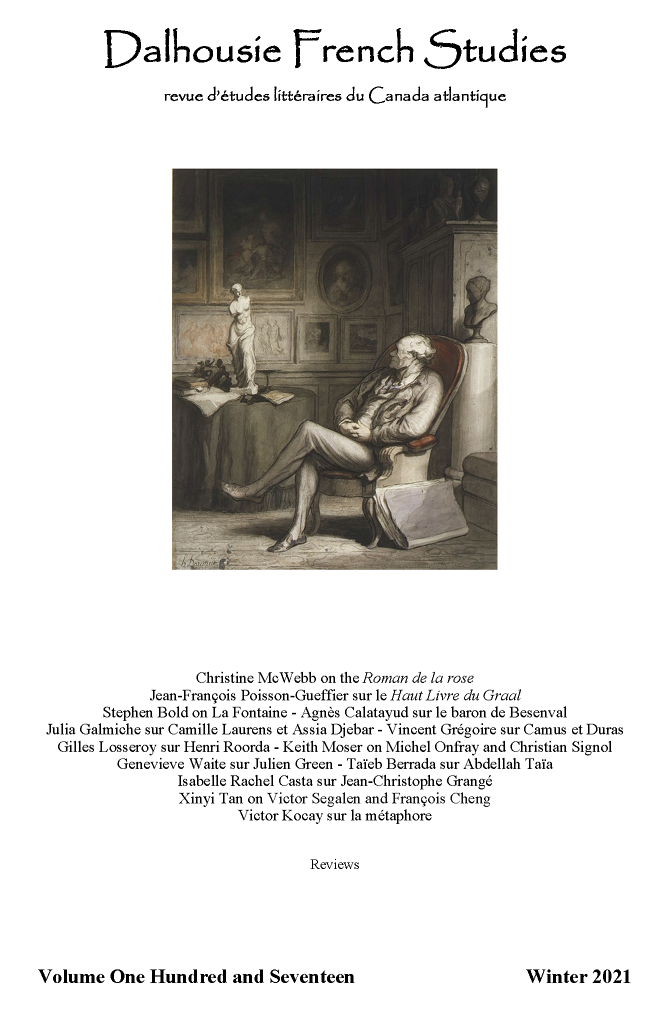Between Ethos and Moralité: Reading La Fontaine's "Préface" to the Fables
Résumé
This paper proposes a reading of La Fontaine‘s puzzling and coy preface to his first volume of Fables. Presented at the start as a friendly debate between the author and a rival, the “Préface” becomes an ironic sort of performance art that reveals the fabulist‘s own ambivalence toward a genre that has come to him cloaked in the sober robes of a moralizing pedagogy. La Fontaine tries on the costume and does his best to play the part, composing his role from the illustrious examples of Socrates — a fabulist in extremis — and eventually a crafty Aesop, only to show us little by little that he is more a poet and artist than a moralist. Distrustful of those who would lecture on virtue and rectitude, La Fontaine‘s teaching anticipates at once Rousseau‘s negative education in the Émile and also Victor Turner‘s pedagogy of anti-structure.
La présente étude propose une nouvelle lecture de la curieuse et déroutante préface au premier recueil des Fables de La Fontaine. Cette préface, qui s‘annonce dans les termes assez classiques d‘un différend entre auteurs, devient peu à peu une performance dans laquelle le fabuliste dévoile ses réticences quant au genre adopté, trop souvent revêtu d‘un moralisme maussade. La Fontaine a beau essayer le costume et jouer le jeu, suivant les exemples illustres de Socrate, devenu fabuliste à l‘article de la mort, et en fin de préface, d‘un Ésope plutôt malin— il se découvre plus poète et artiste que fournisseur de leçons morales. Dans son peu de goût pour les grands discours sur la vertu et la droiture, il anticipe, en proposant aux jeunes innocents le chemin de l‘adaptation et la survie dans un monde souvent hostile, l‘attitude du précepteur d‘Émile et, plus récemment, le principe de l‘antistructure de Victor Turner.


